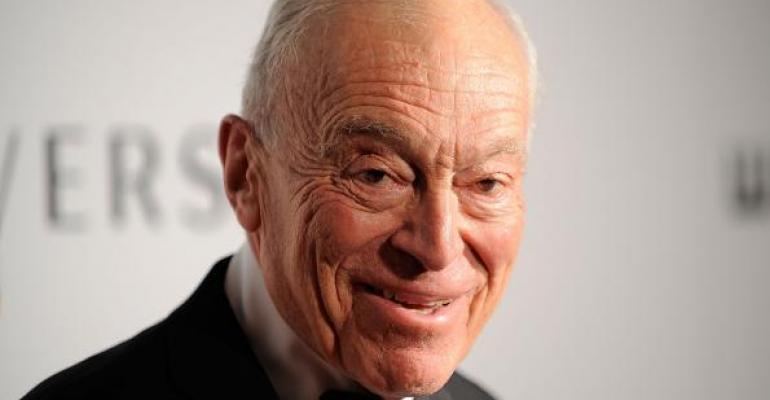(The writer is a Reuters contributor. The opinions expressed are his own.)
NEW YORK, Oct. 13 (Reuters) - Estee Lauder is such an iconic American brand that it is easy to forget she was once a humble girl from Queens, New York. The daughter of Hungarian Jewish immigrants, Lauder managed to create one of the world's biggest cosmetics companies.
She died over a decade ago, but her firstborn son Leonard, 83, is a New York City institution himself, who rose to become chief executive of Estee Lauder Companies Inc and is now chairman emeritus. Lauder sat down with Reuters for the latest in our "Life Lessons" series.
Q: What was your money situation like growing up?
A: The company has only seen huge success relatively recently. It wasn't all of my life. I always tell people you can take the baby out of the Great Depression, but you can't take the Great Depression out of the baby. I was born in the midst of all that. It wasn't like there was money flowing in back then, so I have always been frugal.
Q: What was your first job?
A: As a waiter at a summer camp called Camp Arrowhead. The next year I became a counselor and made $50, and the following year I made $100. On my days off, I used to hitchhike all over New England. So I wouldn't look dangerous, I always put on a blue oxford shirt, a striped tie, and a seersucker jacket, and then stepped into the road and stuck out my thumb. Since then I have always dressed like I owned the place.
Q: What did you learn from witnessing your mother's success?
A: It was long, hard work. People think success comes rushing down on you, but it doesn't. It comes day by day, with very small victories.
Q: When you became a success in your own right, how did you select the right team for handling your money?
A: I didn't. I hear a lot of people talk about wealth managers, but I never met one who was right for me. I understood the world pretty well, so along the way I invested in currencies, stocks and gold. But remember, this was not a lot of money we're talking about. My first apartment I rented when I got married back in 1959 cost $260 a month, which gives you some idea.
Q: What kind of investor would you call yourself?
A: I'm very conservative. And really I don't call myself an investor, I call myself a businessman. I worked hard to build the company, and earned a good living. When it went public in 1995 I had more money, but it's not like I went out and spent it all. I spend only enough to keep me going.
As a result, here we are 20 years later, and I still have 52 percent of the company's voting stock. Other people own yachts; I own a rowboat and a canoe. Other people own huge houses in the Hamptons; my wife and I bought a one-bedroom log cabin.
Q: Any role models you look up to?
A: David Rockefeller. He knew that life isn't a matter of how much money you have, it is about how to make the money you have do great things. So he took his money and used it to save things for tomorrow, like the creation and expansion of many parks.
Q: What guides your own philanthropy?
A: I give a lot of art to museums like the (Metropolitan Museum of Art) and the Whitney. I am also very involved with Central Park. I built a few playgrounds there because I wanted to inspire people that small acts of philanthropy could really work. The first three that I restored only cost me about $30,000 each. I also started an institute at the Wharton School and named it after my father, because we have to change the American educational system for the better. We are also very involved in research for breast cancer and Alzheimer's.
Q: Any investing lessons from the art world?
A: Only buy the best. Don't be a bottom fisherman. I like artists like Picasso, Braque and Leger, as well as the great American photographer Irving Penn.
Q: How have you passed along life lessons to your kids?
A: My kids live their own private lives, but each one of them does great things. My son William, for instance, is chairman of the Fresh Air Fund. I'm proud of my family, and I'm proud of America, even though whenever you turn on the TV, it seems people aren't proud of America these days. I think it is a great country that can still do great things. (Editing by Meredith Mazzilli)






